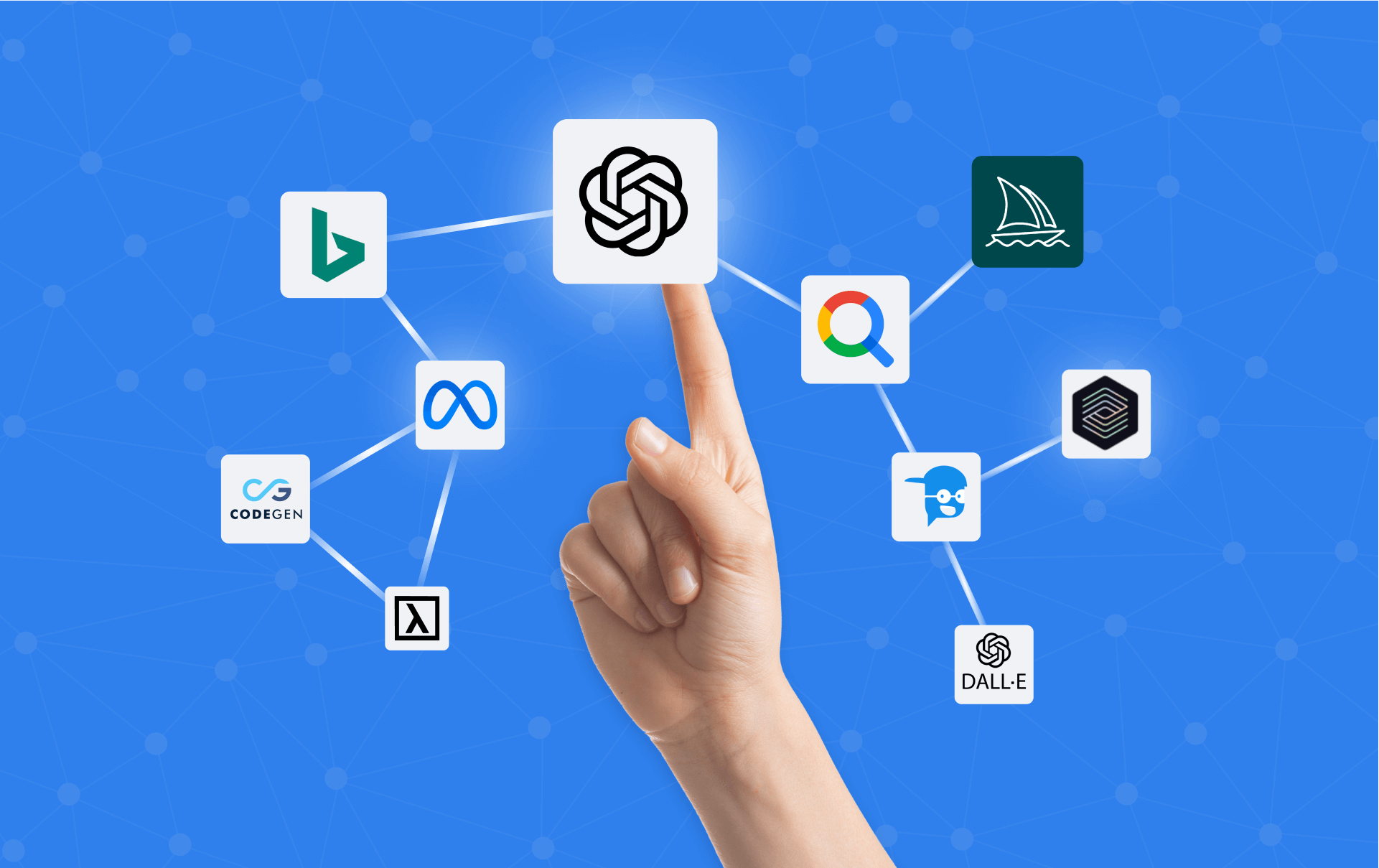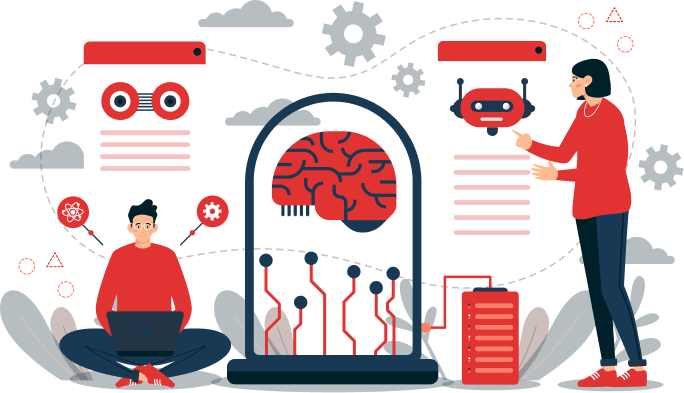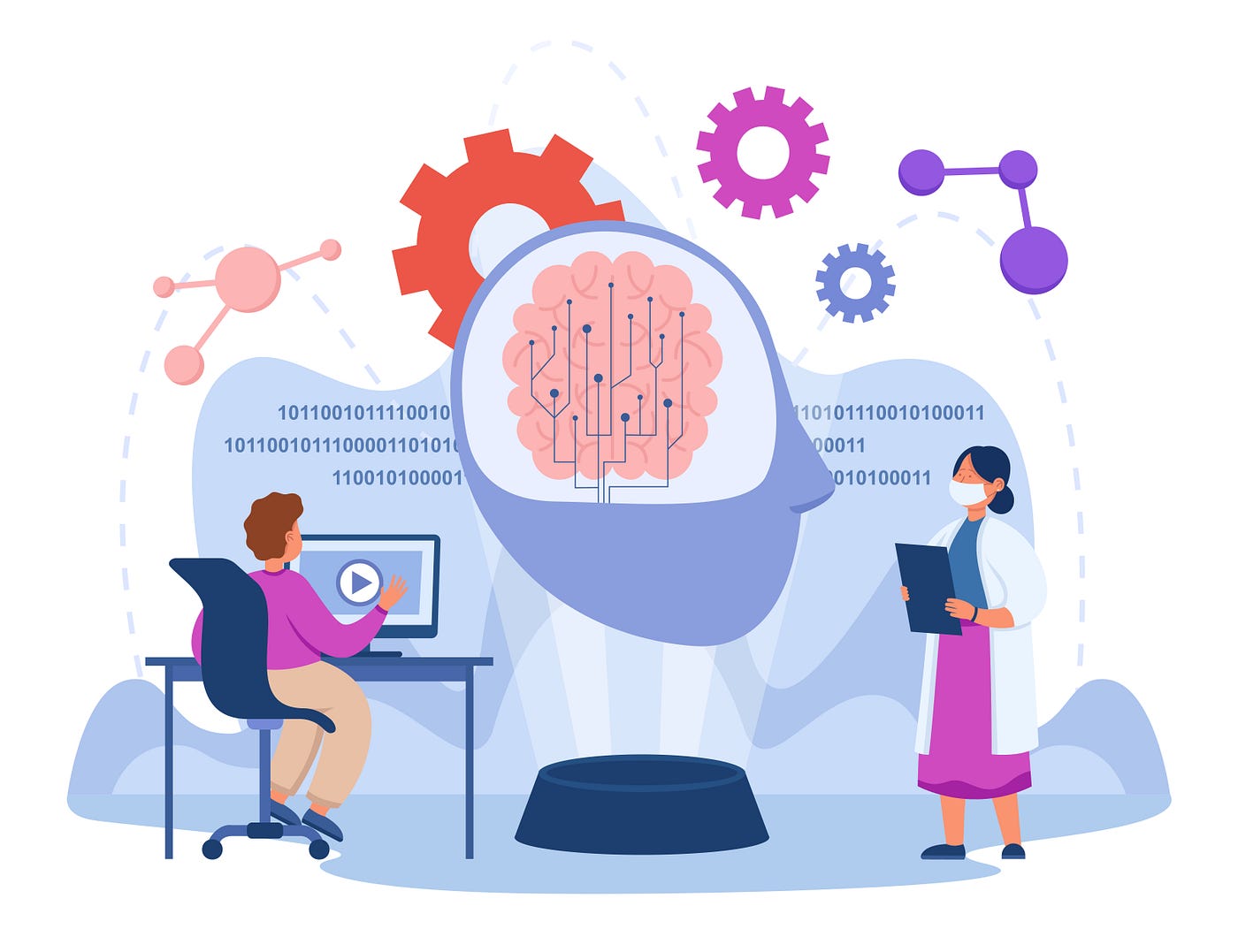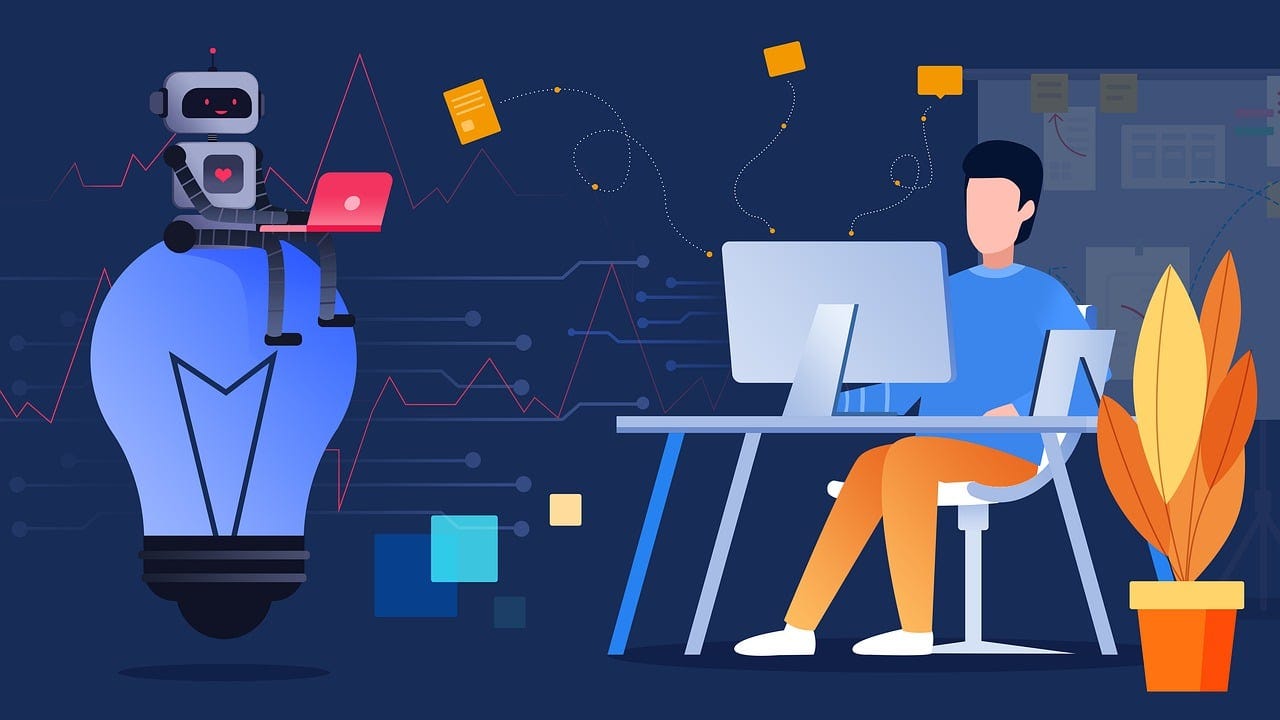Everything you need to Know About a Generative AI Development Company

Introduction to Generative AI Development Companies
What is Generative AI?
Generative AI refers to artificial intelligence systems that create new content such as text, images, music, and videos. These systems use advanced algorithms and machine learning techniques to learn from existing data and generate original outputs. A generative Artificial intelligence development company specialises in building these systems, employing experts in machine learning, data science, and software development.
For example, OpenAI’s GPT-3, a well-known generative AI model, can produce human-like text based on prompts. Similarly, GANs (Generative Adversarial Networks) can create highly realistic images. The generative AI technology revolutionises content creation, allowing businesses to automate and enhance their creative processes.
The Importance of Generative AI in Modern Technology
Generative AI significantly impacts various industries by boosting creativity, efficiency, and innovation. In healthcare, generative AI tools assist in diagnostics and treatment planning by generating detailed medical images from existing data.
A generative AI development company can tailor these models to meet the specific needs of healthcare providers, ensuring more accurate and timely patient care.
In the financial sector, generative AI solutions are used for risk assessment and fraud detection. By analysing patterns in large datasets, these AI models can predict potential fraudulent activities and help institutions mitigate risks.
Companies specialising in generative AI development can customise these solutions to align with the unique requirements of financial organisations.
Entertainment also benefits from generative AI. AI automates content creation, such as writing scripts, designing characters, or composing music.
This allows creative professionals to focus on high-level strategic tasks while the AI handles routine, time-consuming work. A generative AI development company can develop bespoke AI tools that enhance the creative process, making it more efficient and cost-effective.

Understanding Generative AI Development
Definition and Overview
Generative AI development involves creating AI systems capable of generating new content, such as text, images, music, and videos.
These systems use advanced machine learning algorithms and deep learning techniques to learn from existing data and produce original outputs. A generative AI development company specialises in building these systems, leveraging expertise in various AI technologies.
Generative AI models are trained on large datasets to understand patterns and generate content that mimics the style and structure of the input data.
For instance, GPT-3 can write articles and answer questions, while GANs can create realistic images. These models have a wide range of applications, from automating content creation to enhancing creative processes in various industries.

Key Components of Generative AI Development
Generative AI Models
Generative AI models are at the heart of generative AI development. These models include GPT-3 for text generation and GANs for image creation. A generative AI development company employs these models to create custom solutions tailored to specific business needs.
These models are trained using vast amounts of data, allowing them to generate high-quality, realistic content. For example, in the entertainment industry, generative AI models can create unique characters and scripts, streamlining the creative process.
Machine Learning Algorithms
Machine learning algorithms are essential for training generative AI models. These algorithms include supervised learning, unsupervised learning, and reinforcement learning.
A generative AI development company selects the appropriate algorithm based on the specific requirements of the project. Supervised learning algorithms, for example, are used when there is a large amount of labelled data available.
Unsupervised learning is useful for discovering patterns in unlabelled data, and reinforcement learning is applied in scenarios where the AI needs to make a series of decisions to achieve a goal.
Deep Learning Techniques
Deep learning techniques, including convolutional neural networks (CNNs) and recurrent neural networks (RNNs), play a crucial role in generative AI development. These techniques enable AI models to process complex data and generate high-quality outputs.
A generative AI development company uses these techniques to enhance the capabilities of AI models. For instance, CNNs are widely used in image generation tasks, while RNNs are effective in processing sequential data, such as text and speech.

Choosing the Right Generative AI Development Company
Evaluating Expertise in Generative AI Solutions
When selecting a generative AI development company, it’s crucial to evaluate their expertise in various AI technologies and their track record of successful projects. Look for companies with experience in developing generative AI solution and a deep understanding of machine learning algorithms and deep learning techniques.
Key Factors to Consider:
- Experience: A strong portfolio demonstrating the development of robust generative AI solutions.
- Technical Skills: Proficiency in natural language processing (NLP), computer vision, and reinforcement learning.
- Reputation: Positive client testimonials and case studies showcasing successful implementations.
Key Services Offered by Generative AI Development Companies
Development Services
A reputable generative AI development company offers comprehensive generative AI development services covering the entire AI lifecycle. This includes:
- Data Collection: Gathering extensive datasets for training AI models.
- Model Training: Using advanced machine learning algorithms to train models.
- Evaluation and Deployment: Ensuring models are accurate and capable of generating high-quality outputs.
Consulting Services
Generative AI Consulting services provide expert advice on implementing and optimising AI technologies within your organisation. These services help develop a strategic approach to AI integration, maximising the return on investment. Key benefits include:
- Strategic Planning: Guidance on the most effective ways to implement AI solutions.
- Optimisation: Continuous improvement of AI models to meet evolving business needs.
Model Development and Fine Tuning
Model development and fine-tuning are essential for creating effective solutions. Fine-tuning involves adjusting model parameters to enhance performance on specific tasks, ensuring:
- Accuracy: Improved model precision through iterative refinements.
- Efficiency: Optimised performance in real-world applications.
Custom Generative AI Solutions
Every business has unique needs, and a generative AI development company should provide tailored solutions. Whether for marketing content, personalised recommendations, or automated customer service, custom solutions offer significant value.
They leverage advanced technologies such as NLP and computer vision to create bespoke solutions that deliver measurable business benefits.
Core Technologies in Generative AI
Natural Language Processing (NLP)
Natural Language Processing (NLP) is a critical component of generative AI. It enables AI systems to understand, interpret, and generate human language. This technology is essential for applications such as chatbots, language translation, and sentiment analysis.
A generative AI development company uses NLP to create models that can generate coherent and contextually relevant text.
For instance, OpenAI’s GPT-3 is a prime example of an NLP model that can produce human-like text based on given prompts. Businesses use such models to automate customer support, create content, and even develop interactive virtual assistants.
NLP is transforming the way we interact with technology, making it more intuitive and user-friendly.
Computer Vision
Computer vision allows AI systems to interpret and process visual information. This technology is used in various applications, including facial recognition, object detection, and image generation.
A generative AI development company leverages computer vision to create models that can generate realistic images, enhance photo editing tools, and improve security systems.
For example, Generative Adversarial Networks (GANs) are used to create highly realistic images from textual descriptions or existing visuals.
This has applications in industries like advertising, entertainment, and e-commerce. Computer vision is also crucial in healthcare, where it helps in diagnosing diseases by analysing medical images.
Reinforcement Learning
Reinforcement learning is a type of machine learning where AI systems learn by interacting with their environment and receiving rewards or penalties based on their actions. This technique is used in areas such as robotics, game playing, and autonomous driving.
A generative AI development company uses reinforcement learning to develop models that can perform complex tasks and make decisions in real-time.
In the context of generative AI, reinforcement learning can help models improve their performance over time by learning from their interactions. For example, an AI system used in a self-driving car continuously learns from its environment to navigate more effectively and safely.
Neural Networks and Deep Neural Networks
Neural networks, particularly deep neural networks, are the foundation of deep learning. These networks consist of multiple layers of interconnected nodes that process and learn from vast amounts of data.
A generative AI development company uses neural networks to create models capable of generating high-quality content.
Deep neural networks are essential for tasks such as image and speech recognition, natural language processing, and generative modelling. They enable AI systems to understand complex patterns and make accurate predictions.
For example, convolutional neural networks (CNNs) are widely used in computer vision tasks, while recurrent neural networks (RNNs) are effective in processing sequential data like text and speech.
Benefits of Partnering with a Generative AI Development Company
Enhancing Operational Efficiency
A generative AI development company can significantly enhance your operational efficiency. By automating repetitive tasks and streamlining workflows, generative AI solutions can save time and reduce errors.
For example, AI-powered chatbots can handle customer inquiries around the clock, freeing up human agents to focus on more complex issues.
Furthermore, AI-driven data analysis can provide insights that help optimise your operations. Machine learning algorithms can analyse large datasets to identify patterns and trends, enabling you to make data-driven decisions.

This can improve everything from supply chain management to product development.
Key Benefits:
- Automation: Reduce manual workload and minimise errors.
- Data Analysis: Gain valuable insights to optimise operations.
- Cost Savings: Lower operational costs by increasing efficiency.
Helps in Aligning with Business Goals
Generative AI can play a crucial role in achieving your business objectives and gaining a competitive edge. A generative AI development company can develop customised AI solutions that align with your specific goals, whether it’s improving customer satisfaction, increasing sales, or enhancing product innovation.
For instance, personalised marketing campaigns powered by generative AI can target customers with highly relevant content, increasing engagement and conversion rates. Additionally, generative AI models can help in product design by generating new ideas and prototypes, accelerating the innovation process.
Key Benefits:
- Custom Solutions: Tailored AI applications to meet business goals.
- Personalisation: Enhance customer engagement with targeted marketing.
- Innovation: Accelerate product development and innovation.
Seamless Integration and Implementation
One of the significant advantages of working with a generative AI development company is the seamless integration and implementation of AI solutions. These companies have the expertise to integrate AI technologies into your existing systems smoothly, ensuring minimal disruption to your operations.
They can also provide training and support to your team, helping them understand and leverage the new technologies effectively. This ensures that you can maximise the benefits of generative AI without facing technical challenges or resistance from your staff.
Key Benefits:
- Smooth Integration: Minimise disruption during the implementation phase.
- Training and Support: Equip your team to use AI technologies effectively.
- Scalability: Ensure that AI solutions can scale with your business needs.
The Development Process
Stages of Generative AI Development
The development process for a generative AI model involves several key stages. Each stage is crucial for ensuring the AI system’s accuracy, efficiency, and ability to generate high-quality outputs. Let’s explore these stages in detail.
- Data Collection and Preparation: The first step involves gathering extensive datasets relevant to the AI’s intended function. This data must be cleaned and pre-processed to remove any inconsistencies and ensure quality.
- Model Training: Using machine learning algorithms, the AI model is trained on the prepared data. This involves feeding the data into the model and adjusting its parameters to improve performance. Supervised learning, unsupervised learning, and reinforcement learning are commonly used techniques in this stage.
- Evaluation and Validation: After training, the model is evaluated using a separate dataset to assess its accuracy and reliability. Validation helps identify any issues that need to be addressed before deployment.
- Deployment: Once the model is validated, it is deployed in a production environment. This involves integrating the AI model with existing systems and ensuring it can operate effectively in real-world conditions.
- Monitoring and Maintenance: Post-deployment, the model’s performance is continuously monitored. Regular updates and maintenance are essential to ensure the AI system remains effective and adapts to new data over time.
Model Fine Tuning and Replication
Model fine-tuning is a critical part of the generative AI development process. Fine-tuning involves making precise adjustments to the model’s parameters to enhance its performance on specific tasks. This stage is essential for customising the AI model to meet particular business needs.
For instance, a generative AI development company might fine-tune a language model to improve its ability to generate coherent and contextually relevant text for a marketing campaign. Fine-tuning ensures the model produces high-quality outputs that align with the desired objectives.
Replication is another crucial aspect, especially when scaling AI solutions across multiple platforms or applications. By replicating a well-tuned model, businesses can maintain consistency and reliability in their AI-driven processes. This is particularly important for applications like customer service chatbots or automated content generation, where uniformity is key.

Production Environment Considerations
Deploying a generative AI model in a production environment requires careful planning and consideration. Here are some key factors to keep in mind:
- Scalability: Ensure the AI model can handle increased workloads and scale as needed. This involves choosing the right infrastructure and resources to support the AI system.
- Security: Protecting the AI model and the data it processes is critical. Implement robust security measures to safeguard against breaches and ensure data privacy.
- Integration: Seamlessly integrate the AI model with existing systems and workflows. This minimises disruption and ensures the AI system can operate effectively alongside other technologies.
- Performance Monitoring: Continuously monitor the AI model’s performance to detect any issues early and make necessary adjustments. This helps maintain the model’s accuracy and efficiency over time.
- Compliance: Ensure the AI system complies with relevant regulations and standards, particularly regarding data protection and privacy.
Challenges and Considerations
Ethical and Privacy Concerns
When partnering with a generative AI development company, addressing ethical and privacy concerns is paramount.
Generative AI systems can produce vast amounts of data, some of which may inadvertently include sensitive or personal information. Ensuring that these systems adhere to strict privacy standards is essential to protect user data.
Additionally, the ethical implications of AI-generated content need careful consideration. There is a risk of creating misleading or harmful content if the AI is not properly monitored and controlled.
To mitigate these risks, companies must implement robust ethical guidelines and ensure transparency in their AI processes. Engaging with a development company that prioritises ethical AI practices will help safeguard against potential misuse.
Key Actions:
- Data Privacy: Implement stringent data protection measures.
- Ethical Guidelines: Establish clear ethical standards for AI usage.
- Transparency: Ensure transparency in AI-generated content and decision-making processes.
Managing Existing Data and Data Analysis
Managing existing data and conducting thorough data analysis are crucial steps in the development of effective generative AI solutions. A generative AI development company must be adept at handling large datasets, ensuring data quality, and extracting valuable insights.
Data management involves cleaning and organising data to make it suitable for training AI models. This process helps in removing any inconsistencies and ensuring the accuracy of the data.
Effective data analysis, on the other hand, involves using advanced machine learning algorithms to identify patterns and trends. These insights can guide the development of more accurate and efficient AI models.
Key Steps:
- Data Cleaning: Remove inconsistencies and ensure data quality.
- Data Organisation: Structure data for efficient processing.
- Advanced Analysis: Use machine learning algorithms to extract valuable insights.
Staying Updated with Latest AI Trends
The field of generative AI is rapidly evolving, with new technologies and methodologies emerging regularly. Staying updated with the latest AI trends is essential for maintaining a competitive edge and ensuring the relevance of AI solutions.
A generative AI development company should continuously monitor advancements in AI technologies, such as natural language processing (NLP), deep learning, and computer vision.
By integrating the latest trends into their development processes, these companies can offer cutting-edge solutions that meet the evolving needs of their clients.
Key Practices:
- Continuous Learning: Stay informed about the latest AI research and developments.
- Trend Integration: Incorporate new AI technologies into existing solutions.
- Innovation: Foster a culture of innovation to remain competitive.
How Fx31 Labs Excels as a Generative AI Development Company
Fx31 Labs has established itself as a leading generative AI development company by combining expertise in classical and emerging technologies, proficiency in multiple programming languages, and robust data management capabilities.

This comprehensive approach enables Fx31 Labs to deliver innovative, high-quality AI solutions that meet the diverse needs of their clients.
Expertise in Classical and Emerging Technologies
Fx31 Labs stands out for its extensive expertise in both classical and emerging technologies. This dual focus allows the company to develop sophisticated AI models that leverage the strengths of traditional algorithms and cutting-edge advancements.
Algorithms, Computational Geometry, and Performance Optimization
Algorithms form the backbone of AI systems, and Fx31 Labs excels in developing and optimising complex algorithms.
Their expertise in computational geometry allows them to solve problems related to the shape, size, and relative position of figures, which is crucial for applications like computer graphics and image processing. Performance optimization ensures that AI models run efficiently, delivering faster and more accurate results.
Blockchain, AI/ML/DL, and IoT
Fx31 Labs integrates blockchain technology to enhance the security and transparency of their AI solutions. By combining blockchain with AI, machine learning (ML), deep learning (DL), and the Internet of Things (IoT), Fx31 Labs creates robust systems that can handle vast amounts of data securely and efficiently. These technologies are particularly beneficial for applications requiring high levels of trust and traceability, such as financial transactions and supply chain management.
Advanced Web, Auxiliary, and CI/CD Technologies
Fx31 Labs is proficient in advanced web development and auxiliary technologies, which are essential for building scalable and user-friendly AI applications. Their expertise in continuous integration and continuous deployment (CI/CD) technologies ensures that AI models are seamlessly integrated and continuously improved.
VueJs, JavaScript, Angular/React JS
The company’s proficiency in modern web technologies such as VueJs, JavaScript, and Angular/React JS enables them to create interactive and responsive web applications. These technologies are critical for developing front-end interfaces that allow users to interact with AI systems easily.
Rest APIs, Docker, AWS, Azure
Fx31 Labs leverages Rest APIs to facilitate communication between different software components, ensuring seamless integration of AI models with existing systems. They use Docker for containerisation, which simplifies the deployment process and enhances the scalability of AI applications.
Additionally, their expertise in cloud platforms like AWS and Azure allows them to deploy AI solutions on reliable and scalable infrastructure, providing clients with robust and flexible options.
Proficiency in Multiple Programming Languages
Fx31 Labs’ proficiency in multiple programming languages allows them to tailor AI solutions to the specific needs of their clients. This versatility is essential for developing custom applications and ensuring compatibility with various platforms and systems.
C++, Java, .NET/C#, R/Python, Perl
The company’s team of developers is skilled in languages such as C++, Java, .NET/C#, R/Python, and Perl. Each language offers unique advantages, and Fx31 Labs leverages these strengths to optimise their AI models. For instance, Python is widely used for its simplicity and extensive libraries, making it ideal for machine learning and data analysis. C++ is favoured for performance-critical applications, while R is often used for statistical analysis and data visualisation.
Robust Data Management Technologies
Effective data management is crucial for the success of AI projects, and Fx31 Labs excels in this area. Their expertise in various data management technologies ensures that they can handle large datasets efficiently and extract valuable insights.
SQL, Oracle, PostgreSQL, MongoDB, Hadoop, Tableau, PowerBI
Fx31 Labs uses SQL, Oracle, and PostgreSQL for relational database management, providing robust solutions for storing and querying structured data. For unstructured data, they leverage MongoDB and Hadoop, enabling them to handle diverse data types and large volumes.
Tools like Tableau and PowerBI are used for data visualisation, allowing clients to gain actionable insights from their data through intuitive and interactive dashboards.
Access to World-Class Academicians and Domain Experts
One of Fx31 Labs’ significant advantages is their access to world-class academicians and domain experts. This collaboration ensures that their AI solutions are built on the latest research and industry best practices.
Collaboration with Experts
Fx31 Labs collaborates with top academicians and industry experts to stay at the forefront of AI innovation.
This collaboration allows them to incorporate cutting-edge research into their development processes and ensures that their solutions are based on the latest advancements in AI and related technologies.
Continuous Learning and Improvement
By engaging with leading experts, Fx31 Labs fosters a culture of continuous learning and improvement.
This commitment to excellence ensures that their team is always equipped with the latest knowledge and skills, enabling them to develop state-of-the-art AI solutions that meet the evolving needs of their clients.
Conclusion
Fx31 Labs excels as a generative AI development company by leveraging their extensive expertise in classical and emerging technologies, proficiency in multiple programming languages, and robust data management capabilities. Their advanced web and CI/CD technologies, combined with access to world-class academicians and domain experts, ensure that they deliver innovative and high-quality AI solutions. Whether it’s enhancing operational efficiency, achieving business objectives, or staying updated with the latest AI trends, Fx31 Labs is well-positioned to help businesses navigate the complexities of AI and drive success.
FAQ’s
1. What does a generative AI development company do?
A generative AI development company specializes in building artificial intelligence systems that create original content, such as text, images, and code. They employ experts in machine learning and data science to design, train, and fine-tune models like GPT-3 or GANs, helping businesses automate creative processes and solve complex problems.
2. How can generative AI benefit my business?
Generative AI boosts operational efficiency by automating repetitive tasks and streamlining workflows. It enhances creativity, aids in personalized marketing, and provides data-driven insights for better decision-making. From fraud detection in finance to diagnostics in healthcare, these tools allow businesses to innovate faster and reduce operational costs.
3. What core technologies are used in generative AI development?
The primary technologies include Natural Language Processing (NLP) for text generation and Computer Vision for image analysis. Developers also rely on Deep Learning techniques, Neural Networks (like CNNs and RNNs), and Reinforcement Learning to train models that can learn from data patterns and improve over time.
4. How do I choose the right generative AI partner?
Look for a company with a proven track record and a strong portfolio of successful AI projects. They should demonstrate expertise in NLP, computer vision, and deep learning. Additionally, ensure they offer end-to-end services, including data collection, model training, and post-deployment support to ensure seamless integration.
5. What are the stages of developing a generative AI model?
The development process starts with data collection and preparation to ensure quality inputs. This is followed by model training using machine learning algorithms. The system then undergoes rigorous evaluation and validation. Once approved, it is deployed into the production environment, where it receives continuous monitoring and fine-tuning.
6. Why should I consider Fx31 Labs for AI development?
Fx31 Labs combines expertise in classical algorithms with emerging technologies like Blockchain and IoT. They are proficient in multiple programming languages (Python, C++, Java) and robust data management tools. Their collaboration with world-class academicians ensures that their custom AI solutions are built on the latest research and industry standards.
